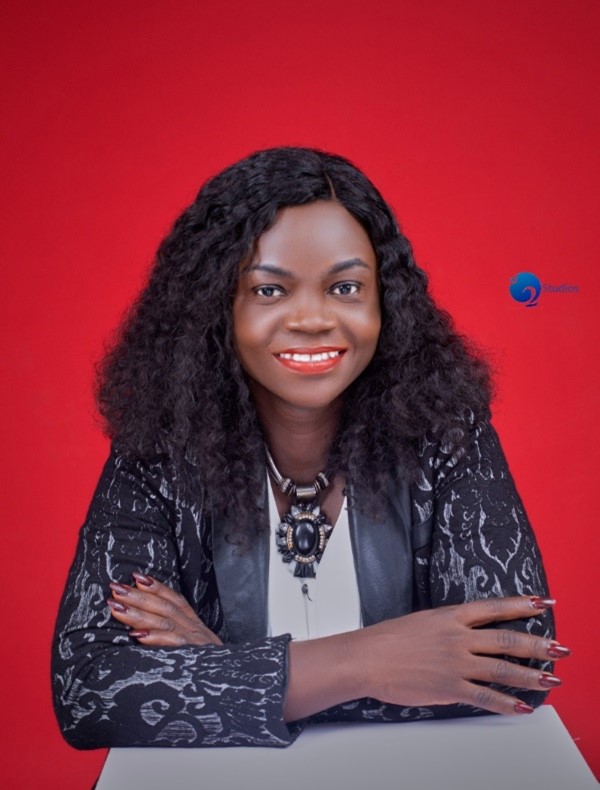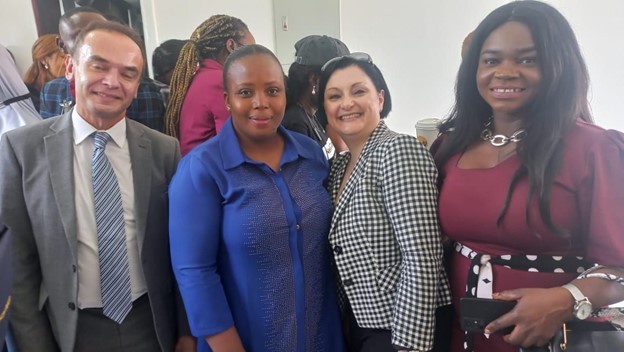
Growing an Ed-Tech in a Digital World
The twenty-first century is generally known as the Information Age – an era marked by the rapid adoption of new technologies and the creation of digital economies. In these modern times, the role of technology is significant and regarded as the underpinning of socioeconomic development. An economy lacking in technology cannot grow in this current age, because there will be no automation of tasks that make productivity much faster and easier.
Technology has an impact on every conceivable area, including education, workplace, personal life, etc., and there are over 1.35 million tech-startups worldwide. It is estimated that by the end of 2022, there will be a 63% global internet penetration rate; and by 2030, there would be over 50 billion smart devices simultaneously gathering, processing, and sharing data, as the computing and processing capacity of computers hits double figures every 18 months.
Despite this exponential growth, Africa is lagging in development – as it is in all areas. With a 33% usage rate, Africa had the lowest internet usage globally in 2021. However, Technology is becoming a more important factor as Africa moves from the periphery to the center of the global economy. Regional trends in business, investment, and modernization are being supported by the emergence of a digital ecosystem, a developing patchwork of entrepreneurs, virtual businesses, and innovation hubs convergent, from country to country, and Nigeria is beginning to be recognized as a hub for new business development, as American Tech Giants like Netflix, and Facebook all made inroads to the country and investors from Silicon Valley are interested in Nigerian start-ups.
The global digital economy was created through the widespread use of technical instruments and infrastructure, big data, user interfaces, audience networks, new media, and content, which put together, resemble an ecosystem. This digital economy is worth almost three trillion dollars. To put it in context, this is about 30% of the S&P 500, six times the U.S.’ annual trade deficit or more than the GDP of the United Kingdom. What’s more is that this entire value has been generated in the past 20 years since the launch of the Internet. Nigeria’s Digital Economy is said to raise the government revenue profile by about 15% of the country’s Gross Domestic Product (GDP) by 2025. This exponential growth of the tech sector demands skilled workers in the industry.
The amount of skilled and technologically savvy labor force that is present in a nation has a direct impact on how quickly digital firms advance the level of development of the digital economy, and how to make digital enterprises more competitive internationally.
Issues and Dynamics of the technology sector in Nigeria
In the past five decades, the technology sector has been considered a male-dominated industry across the globe, as women were, and still are, under-represented in the sector. The tech world has been largely designed by and for men, and women have traditionally been left out of the data story that feeds the development of the products we use. This is evident in tech goods, like the mobile phone, designed for men’s bulky hands, and virtual assistants programmed by default to be in the female voice. In 2020, a Guardian article asked why the percentage of women in the digital workforce still sat below 20%, and today, ten years later, nothing had changed. In 2022, the statistics remain just as woeful. The number of women versus men in the technology industry has declined over the past 35 years. A recent study by Deloitte Insights predicted that firms are likely to reach 33% female representation this year, only up by 2% points from the same survey three years ago. Perhaps what’s even more telling is that the Deloitte Insights survey said that this tiny percentage increase of only 2% was notable. Progress is slow.
Nigeria is the largest technology market in Africa with 24% of the continent’s internet users. Today, the IT industry in Nigeria contributes about 10% to the GDP of the country. In 2001, it was less than 1% of GDP. Despite this advancement, less than 22% of Nigeria’s graduates from engineering and technology universities are women. In fact, the number of women receiving computer science degrees has decreased over the last three years, according to data from the National Bureau of Statistics. According to the same source, women make up roughly a fifth of the total number of people working in the information and communication technology sector.
The statistics in Nigeria are very alarming. 8 out of 10 girls in Nigeria cannot use a computer, 7 in 10 girls do not own a computer, and 16.7 million girls are out of school in Sub-Saharan Africa.
Why does this under-representation of women matter? Research has shown that teams perform far better when Individuals from different genders, races, backgrounds, and experiences bring diverse perspectives to create solutions. They bring innovative solutions to whichever problems they are tackling, and Nigeria needs these innovations for development.
All hands should be on deck as the fourth industrial revolution approaches and the changes brought on by the technological revolution. Women’s abilities to read body language, form strong teams, coach others, and generally possess emotional intelligence are now valued and profitable. When businesses and organizations use a diverse staff, everyone wins. 90% of occupations in the next 10 years will require knowledge and abilities in technology, and the number of positions in the programming industry is gradually growing. In research published by the World Economic Forum, it is predicted that automation and computers will eliminate several jobs in the next years. In addition to being well paid, these positions are necessary for reaping the benefits of automation, which include rising living standards, more access to education and healthcare, and astronomical economic growth. Programming and digital skills are also essential for addressing the environmental effects of digitalization, including cybercrime, job sector reorientation, desolation, and climate change. These factors make it extremely important that women benefit from and participate in finding answers to these issues.
The poor engagement of women in digital skills can be attributed to several factors, including Early Girl Child marriage, harassment due to cultural restraint, peer pressure, a lack of female tech role models, encouragement, lack of access to digital products and services for Women and Girls, and programming possibilities. It has been demonstrated that there is no aptitude problem. In Nigeria, local women face twice as much bias as local males; in some communities, girls still struggle to get basic education and find acceptance at work.
Blue Sands Startup Story
Alero Thompson is a techpreneur and educationist who is passionate about building
the capacity of the girl child. She is the Founder and Chief Education Officer of Blue
Sands Academy, a social enterprise has impacted the lives of over 3000 girls in
northern Nigeria and created over 200 jobs.
Alero was one of the beneficiaries from a pool of tens of thousands of applications received in 2019 from entrepreneurs across 54 Africa on the Tony Elumelu Foundation Entrepreneurship Programme – a 10-year, $100 million commitment to identify, train, mentor, and fund 10,000 entrepreneurs in Africa. Since 2015, the TEF Entrepreneurship Programme has empowered 15,847 African entrepreneurs with a non-returnable seed capital

of $5,000 each, twelve weeks of business management training, access to experienced mentors, and a network of Africa’s largest entrepreneurial ecosystem. After three attempts, Alero was finally selected for the programme and accessed a $5,000 seed grant which she used to launch the Blue Sands Academy. Blue Sound Wave is one of the pioneer Edtech platforms that provide onsite and online tech training programs dedicated to women in Nigeria.
“This seed capital made a great difference in my life. I owe this life-transforming opportunity to the TEF Foundation. I got trained and mentored by the foundation which gave me the transformational skills and business acumen that turned my business around. Being a TEF Alumnus has opened up lots of opportunities for me.”
Leapfrogging
Amidst the dystopia and myriad challenges of this gross under-representation, sprouted a young lady from the suburbs of the Nigerian State, who aims to tip the scale of imbalance by equipping women with the various technical skills that will position them for a job in the tech industry. First thrown into the entrepreneurship realm by the economic hardship bedeviling her family, she quickly developed the resilience and business skills needed to survive as a businesswoman seeing that she had never found fulfillment in the 9 to 5 job she does.
“Technology is changing the world, but women are still underrepresented in tech. We need to train more women and encourage entrepreneurship in tech. The best way to do this is through technology edtech like what we are doing at Blue Sands Academy that focuses on developing strong female leaders”.
Upon receiving the seed grant, Alero Thompson started her learning academy in Kaduna State of Nigeria where she provides on-site, and online tech training programs targeted at Women and Girl Children between the age of 18-25 and 11-17 respectively in Private and Public Schools and aim to cover Nigeria and other Sub-Saharan Countries. The Academy offers face-to-face training for girls in coding (computer programming), UI & UX design, animation (cartoon), mobile app development, leadership, entrepreneurial skills training, etc. They also provide life-changing opportunities for women where they guide them on how to start a new business and introduce them to grant opportunities and other forms of investment and funding. Driven by her quick desire to address this under-representation, she charted an expansion plan by first opening a branch in Lagos State to penetrate other states in months to come. What sets her apart from other training platforms is that they are the first learning platform in Nigeria tailored toward meeting the IT needs of the Girl Child and connecting them to internship opportunities which other competitors don’t do.
In order to expand and boost the revenue and effect of her business, she created partnerships with other TEF Alumni and the WE4A network in India—THEV YLIP. By 2023, it is intended to penetrate the Sub-Saharan market.
Speaking about the impact she has on her community she said, “I never knew that my organization could train secondary school girls and make them win national and international ICT Competitions. We are growing to become like the Udacity face of Africa and the first ever female e-Learning platform that goes beyond learning but also creates an inclusive and connected economy. It gives me the pride to say that an African woman like me is making giant changes in my small community and it is being noticed in Nigeria and the global world.”

Since the launch of Blue Sands Academy in 2019,with a $5,000 seed grant, the Academy has successfully trained over 3,000 women and girls and 70% of these girls have taken computer-related courses in their university studies while the women got jobs and started their businesses. The academy generated total revenue of $14,000 in 2020 and 2021, they realized total revenue of $55,000 and it is projected to raise $100,000 in 2022. The Academy has also opened doors to other women through mentorship and providing gender-inclusive and responsive employment within the team by creating over 15 full-time workers, 20 direct jobs, and 15 indirect jobs.
In her quest to impact the lives of women in her community, Alero Thompson In 2020, got appointed as the National Advocacy Officer of the African Union Youth Commission and the Director of Events and training by Unite 2030, a youth-led organization on the SDGs. In 2022, she was featured in Time Square Towers in New York City[i] for the impact of her business and for helping to solve SDGs 4, 5, and 8. To be featured on this Time Square Towers cost up to a million dollars but impact took her there.

The European Union’s game-changing moment
The European Union and the African continent have a long history of cooperation focused on security, peace, and sustainable and sustained economic development and prosperity for Africa. Given the EU’s strategic global investment approach to women’s development in Africa, the Women Entrepreneurship for Africa (WE4A) programme was launched. The WE4A is an EU, OACPS, and BMZ-funded program to provide 120 female entrepreneurs from the TEF alumni network access to €10.000 in grant financing, matched with 3 months of technical support through a virtual acceleration program. The initiative aims to boost women-led businesses’ entrepreneurial skills to maximize their prospects of obtaining additional investment from private investors.
Alero saw the enormous opportunities for her Academy to scale after receiving rigorous training, business mentoring, and a seed grant from TEF. She continued to look for other opportunities despite the difficulties in obtaining financing for scale-up operations, a difficult task for business owners, particularly women. Despite this, Alero persisted in establishing a long-lasting company. She applied to the Women Entrepreneurship for Africa program in 2021, which is run by the Tony Elumelu Foundation (TEF) and the German Development Agency GIZ and is supported by the European Union (EU), Organization of African, Caribbean, and Pacific States (OACPS), and the German Federal Ministry for Economic Cooperation and Development (BMZ) (E4D program). Although she did not advance to the Growth level after receiving 10,000 euros from the Accelerator program, she used the money to purchase business supplies, technological resources, and other necessities for her company. She used the training she received from the WE4A program to restructure her company and get it ready for further investment.
“Women entrepreneurs face unique challenges in obtaining financing for their scale-up operations. As a result, the ability of women to obtain funding is limited. However, there are ways to overcome these challenges by taking proactive steps to search for opportunities to scale”
Prior to this, she got selected for the Young Africa Leaders Initiative Alumni grant program and got funded. In 2021, she also got the opportunity to be selected for the Friends of Prof (Vice President of Nigeria) business grant. She took advantage of the skills she had learned during the WE4A program and was chosen for an impact investment of at least $200,000 afterward. Within a few weeks of receiving this offer, she was chosen for the MS11 SDG Challenge, sponsored by Mohammed Sanusi, the Emir of Kano, and offering grants of up to $100,000 over the course of several stages and milestones.
“The Seed Capital, training and mentorship from the Tony Elumelu Foundation is a ‘seed that just keeps growing and I am very grateful for this.”
The prospects for women in the booming Nigerian Tech Sector
Women have a great role to play in the growing tech industry in Nigeria and Africa at large and Blue Sands is just one of the few Academies offering women this rare opportunity to actively participate in the industry.
Efforts should be made to encourage the participation of women in the ICT sector. Government intervention is crucially needed to bridge this gap, which is why the National

Assembly’s still-pending Gender and Equal Opportunities bill would go a long way toward eradicating all types of gender discrimination if it were passed and put into effect. Angel Investors and Venture capitalists should do well by giving women equal investment opportunities. More Entrepreneurs should go into the business of educating women in a bid to address this under-representation.
For women’s entrepreneurship in Africa, Alero Thompson of Blue Sands Academy serves as an excellent role model. She is still dedicated to advancing leadership for sustainable growth and development for African women as well as advancing the education of women. She continues to empower and mentor girls and women around Nigeria and Africa by sharing the success stories she has achieved.
